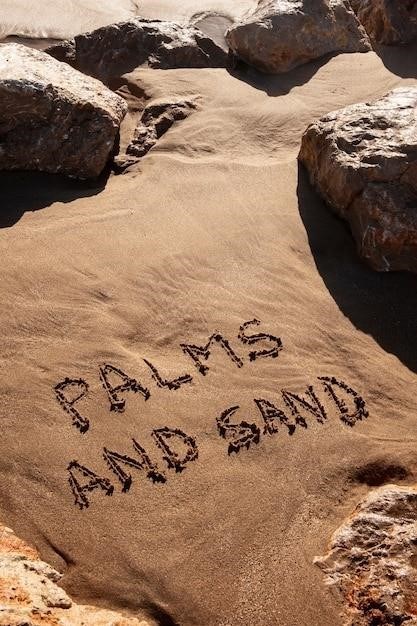Explore the wisdom of early Christian monks through readily available PDF collections of their sayings; These texts offer profound insights into their spiritual journeys and ascetic practices, impacting Christian spirituality for centuries.
Early Christian Monasticism in the Desert
The Sayings of the Desert Fathers offer a window into the lives of early Christian monks who, starting in the late 2nd century AD, sought spiritual solitude in the deserts of Egypt, Palestine, and Syria. These weren’t typically scholars or clerics, but ordinary individuals driven by a profound desire for a closer relationship with God. Their renunciation of worldly possessions and embrace of rigorous asceticism established a model of monastic life that profoundly influenced the development of Christian spirituality. The movement spread rapidly, shaping monastic traditions for centuries to come. The harsh, unforgiving environment of the desert became a crucible for their spiritual growth, fostering a deep connection with the divine, manifested in their simple yet profound sayings. These sayings, passed down orally for generations, capture the essence of their spiritual struggles, triumphs, and wisdom. Their legacy continues to resonate with seekers of spiritual understanding today.
The Origins and Development of the Sayings
Initially transmitted orally within monastic communities, the sayings of the Desert Fathers evolved organically over time. These pithy pronouncements, reflecting the lived experiences and spiritual insights of these early monks and nuns, were not initially recorded systematically. The sayings emerged from daily interactions, teachings, and personal reflections. Their transmission relied on memory and repetition, creating a dynamic and evolving oral tradition. Eventually, the need to preserve these invaluable spiritual teachings led to their compilation in written form. Different collections appeared, varying in content and arrangement, reflecting the diverse monastic communities and geographical regions. The most well-known collections were compiled in Coptic, Syriac, Greek, and later Latin, showcasing the wide reach and enduring impact of this oral tradition. This process of oral transmission and eventual written compilation resulted in the varied forms and versions of the sayings available today, each offering a unique perspective into this rich spiritual heritage.

Key Themes in the Sayings
The sayings explore asceticism, practical theology, and the essence of monastic life, offering guidance for spiritual growth and a deeper understanding of faith.
Asceticism and Renunciation
The sayings of the Desert Fathers frequently emphasize asceticism and renunciation as integral aspects of the spiritual life. These practices, often involving self-denial and detachment from material possessions, weren’t merely acts of self-mortification but rather pathways to deeper communion with God. The texts reveal how the Fathers viewed renunciation not as an end in itself, but as a means to cultivate humility, focus on prayer, and develop a closer relationship with the divine. Through their experiences, they demonstrate how shedding worldly attachments can lead to spiritual freedom and a clearer perception of God’s will. The emphasis placed on simplicity and detachment serves as a powerful counterpoint to the materialism often prevalent in modern society, offering a compelling alternative path towards spiritual fulfillment. The numerous examples of self-discipline and sacrifice within the sayings illustrate the Fathers’ unwavering commitment to their faith and their pursuit of a life wholly dedicated to God. This aspect underscores the importance of intentional self-control in the spiritual journey, a theme that resonates deeply with readers seeking a more meaningful and purposeful life.
Practical Theology and Spiritual Guidance
The sayings offer invaluable practical theology and spiritual guidance, providing concrete examples of how to live a life rooted in faith. Unlike systematic theological treatises, these sayings present lived experiences and direct advice on navigating the complexities of spiritual growth. They offer readily applicable wisdom on prayer, temptation, discernment, and community life. The concise and often paradoxical nature of the sayings encourages reflection and personal interpretation, making them relevant across diverse spiritual journeys. Readers find guidance in overcoming obstacles, nurturing virtues, and deepening their relationship with God. The emphasis on daily practice and consistent effort reflects a pragmatic approach to spirituality, grounding abstract theological concepts in everyday life. The intimate and personal nature of many sayings fosters a sense of connection with the Desert Fathers, making their wisdom both accessible and relatable. The collected sayings act as a spiritual guidebook, offering practical tools and encouraging readers to actively engage in their own spiritual development. This hands-on approach makes the sayings particularly valuable for those seeking tangible ways to integrate their faith into their daily lives.
The Nature of Monastic Life
The Sayings of the Desert Fathers offer a window into the realities of early Christian monastic life, revealing a community dedicated to intense prayer, self-discipline, and spiritual growth. These texts depict the daily routines, challenges, and spiritual struggles of the monks and nuns living in the Egyptian desert. We see their commitment to solitude and asceticism, but also their communal life and mutual support. The sayings illustrate the importance of obedience, humility, and perseverance in the face of temptation. They highlight the importance of spiritual mentorship and the guidance received from experienced elders. The nature of their relationship with God is portrayed as deeply personal and intensely demanding, requiring constant vigilance and self-examination; The sayings reveal a spiritual life characterized by both profound joy and profound hardship, reflecting the complexities of pursuing holiness in the midst of human frailty. The descriptions of their simple lifestyle, focused on prayer and manual labor, provide a stark contrast to the complexities of modern life, offering a powerful example of intentional living. The emphasis on community and mutual support underscores the importance of spiritual fellowship in the pursuit of spiritual growth.
Significant Figures and Their Sayings
Discover the impactful lives and wisdom of key figures, such as Anthony the Great and Abba John the Dwarf, whose sayings illuminate the path to spiritual growth.
Anthony the Great⁚ The Father of Monks
Anthony the Great, revered as the “Father of Monks,” emerges as a pivotal figure in early Christian monasticism. Born around AD 251 in Egypt, his life story, preserved across various ancient sources, showcases his profound commitment to ascetic living. Inspired by a church sermon, he embraced a life of renunciation, abandoning his worldly possessions to pursue a deeper connection with God. His profound experiences and guidance shaped the development of monastic traditions in the Egyptian desert. Many of his sayings, passed down through oral tradition and later compiled into written collections, offer valuable insights into his spiritual journey and the principles that guided his life. These sayings emphasize the importance of self-discipline, prayer, and unwavering devotion to Christ. His legacy continues to inspire generations of Christians seeking a life of spiritual dedication and profound faith, as evidenced by the numerous references to him and his teachings within the Sayings of the Desert Fathers. Access to these collections, available in various PDF formats, allows for a deeper understanding of his contributions to Christian spirituality.
Abba John the Dwarf⁚ A Story of Perseverance
The life of Abba John the Dwarf, as recounted in the Sayings of the Desert Fathers, exemplifies unwavering dedication and perseverance in the pursuit of spiritual growth. His story, often found within accessible PDF collections of these sayings, highlights the transformative power of consistent effort and unwavering faith. Despite his physical stature, Abba John’s spiritual stature was immense. A tale describes his task of watering a dry stick daily with water fetched from a distant source, a parable illustrating the persistent effort required for spiritual flourishing. This act of unwavering dedication, despite hardship and seemingly fruitless labor, mirrors the challenges faced on the path to spiritual maturity. Abba John’s story serves as a powerful reminder that spiritual growth is a process demanding consistent effort and unwavering commitment, even when progress seems slow or imperceptible. His enduring legacy encourages readers to embrace challenges with steadfast resolve, mirroring his own journey of perseverance in the pursuit of a deeper relationship with God. The availability of these sayings in readily accessible PDF formats allows for a wider appreciation of his enduring message.

Accessing and Interpreting the Sayings
Numerous online resources and PDFs offer translations of the Sayings. Careful, contemplative reading, focusing on application rather than just comprehension, is key to understanding their timeless wisdom.
Available Translations and Editions (PDFs)
Accessing the Sayings of the Desert Fathers in PDF format is surprisingly straightforward. Many online sources provide free digital copies of various translations, including Benedicta Ward’s widely acclaimed version. These PDFs often include the original Greek or Coptic text alongside the English translation, allowing for deeper study and comparison. Remember to check the source’s reliability; some websites may offer incomplete or inaccurate versions. Look for reputable publishers or academic institutions to ensure authenticity. The availability of these digital editions makes this rich spiritual tradition accessible to a broader audience, fostering a wider understanding of early Christian monasticism and its enduring relevance. The ease of access via readily available PDFs contributes to the ongoing study and appreciation of these ancient texts. Searching online for “Sayings of the Desert Fathers PDF” will yield numerous results, enabling you to choose a version that suits your needs and preferences, whether it’s a scholarly edition or a more accessible translation for personal reflection. Always compare multiple sources, if possible, to ensure accuracy and gain a more holistic understanding of the collected sayings.
Guidance on Reading and Applying the Sayings
Approaching the Sayings of the Desert Fathers requires a mindful and contemplative approach. Don’t rush; read a few sayings at a time, allowing their wisdom to resonate within you. Consider the historical context⁚ these weren’t systematic theological treatises but spontaneous reflections from individuals striving for holiness. Reflect on the practical implications of each saying for your own life. How can these ancient words illuminate your current challenges and spiritual journey? Don’t judge the sayings based on modern sensibilities; instead, seek to understand the values and worldview of these early Christians. Engage with them prayerfully, seeking guidance and inspiration. Some advise limiting your daily reading to 2-3 sayings, ensuring sufficient time for reflection and application. The goal isn’t simply intellectual understanding but transformative spiritual practice. Remember, the sayings are tools for spiritual growth, not rigid rules. Let them challenge, inspire, and guide you on your path toward a deeper relationship with God, adapting their wisdom to your unique circumstances and spiritual journey.
